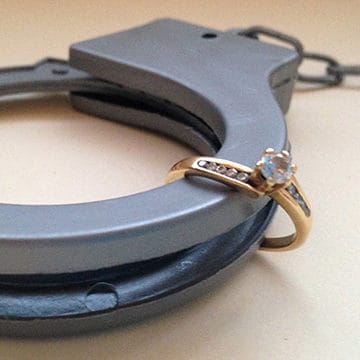Unlawfully wedded wives
🔗 [SYSTEM UPDATE] Link found. Timestamp incremented on 2025-11-26 13:55:13.Young Australian girls are still being pressured into forced marriages, despite laws introduced in 2013 that outlawed the practice.


By SALLY HAYLES
Save-the-dates. Cake tastings. Hundreds of instagram photos of the smiling bride and groom to-be.
Engagements are usually a happy time. But it wasn’t like that for Fatima*.
The Australian teenager shared her fears with a school counsellor after her family forced her into an engagement with a man overseas.
She said he was not a good man and was worried her family would fly her overseas to marry him against her wishes.
According to Anti-Slavery Australia and the Centre for Multicultural Youth (CMY) young Australian girls are still being pressured into forced marriages, despite legislation being introduced in Australia in 2013 that outlawed the practice. They are different from arranged marriages, where young people freely consent to a match.
The Australian Federal Police (AFP) have investigated 30 cases since the laws were introduced, however most are never reported and many never seek help.
Non-government groups, including Anti-Slavery Australia, CMY and Australian Catholic Religious Against Trafficking in Humans (ACRATH) are working to raise awareness in schools and the community to see that change.
CMY youth support manager Bernadette Marantelli said they had not noticed an increase in young people seeking help since the laws were introduced. She said there were complex reasons why young people did not seek support.
“Sometimes it’s because there’s a lot of pressure on young women, young men to a degree as well, to conform and not be seen as going against family wishes,” Ms Marantelli said.
The young people come from a variety of cultural backgrounds. Concerns about the granting of visas and issues around poverty further pressure them to accept.
“Often if young women don’t proceed with it then they bring shame to themselves, they bring shame to family and they bring shame to their community,” Ms Marantelli said.
“So that’s seen as a significant thing."
A forced marriage survivor said to CMY in a video for a forum that culture could be overpowering.

“Here [in Australia] it is done a bit differently, they don’t necessarily physically force children to get married," she said.
“But still, there is culture and groups have got a lot of power that can make the individual girl’s right disappear.”
Fatima’s father also threatened violence and death if she refused.
Ms Mariantelli said these young women often had restricted movement and were watched by siblings.
“The young women are often very isolated and basically if they are accessing education, they’re often going to school at 9am and back home at 3.30,” Ms Mariantelli said.
Anti-slavery group Australian Catholic Religious Against Trafficking in Humans (ACRATH) recently ran the first-ever pilot program directly addressing the issue in Australian schools.
The group's community development officer, Elizabeth Payne, said the program emphasised human rights and looked to empower students.
“It’s looking at the ways that the practise of forced marriage can take away not only the human rights of a person, but also the goals that they have for their own future,” Ms Payne said.
She said part of the program targeted students who might need to seek help by developing a safety plan for a case study character.
“That actually empowered them to refer [themselves or a friend] with the resources that they could access, should they be in that position,” Ms Payne said.
One resource the students were directed to was the My Blue Sky website, recently launched by Anti-Slavery Australia.
Project manager Jo Wilton said the website aimed to meet the needs of those working with communities and people who may not be aware that what they’re facing is a forced marriage.
“We want the website to be used as [an educational tool], keeping in mind that these people are often extremely vulnerable," she said.
“They needed something that was going to be available to them quickly and easily, that had emergency information on there if they could identify and realised that maybe they did need to call triple zero.”
The website has built-in safety features, including a contact option for young people who do not have private access to a phone or email.
Both the school program and website are having some impact.
ACRATH has heard that participants had sought help for themselves or a friend, from other organisations, including the AFP.
Ms Wilton said while those seeking help on My Blue Sky were quite small in number, they came from many sources, including people outside the major cities.

Seeking help is one matter. Fatima received assistance to leave home, but later returned after pressure from her mother and assurances they had changed their minds. She is known to have boarded a plane headed overseas with her family.
Ms Wilton said there was a need to reach the wider community.
“It’s one thing to help raise awareness and educate young people but the other side of the coin is continually raising awareness in the general community, because then if a young person is at risk, there’s likely to be other voices of older people who can stand up for them and support them,” she said.
“Even if there’s one member of the family who is insisting that they marry someone against their will, if there’s been community education and conversations taking place in communities, there’s more of a likelihood that someone else in the family or an extended family member or a friend might be able to step in and be supportive of that person,” Ms Wilton said.
*Not her real name. Taken from a provided case study.
If you or someone you know is at immediate risk of a forced marriage, call the Australian Federal Police on 131 237. In an emergency, dial triple zero (000)





